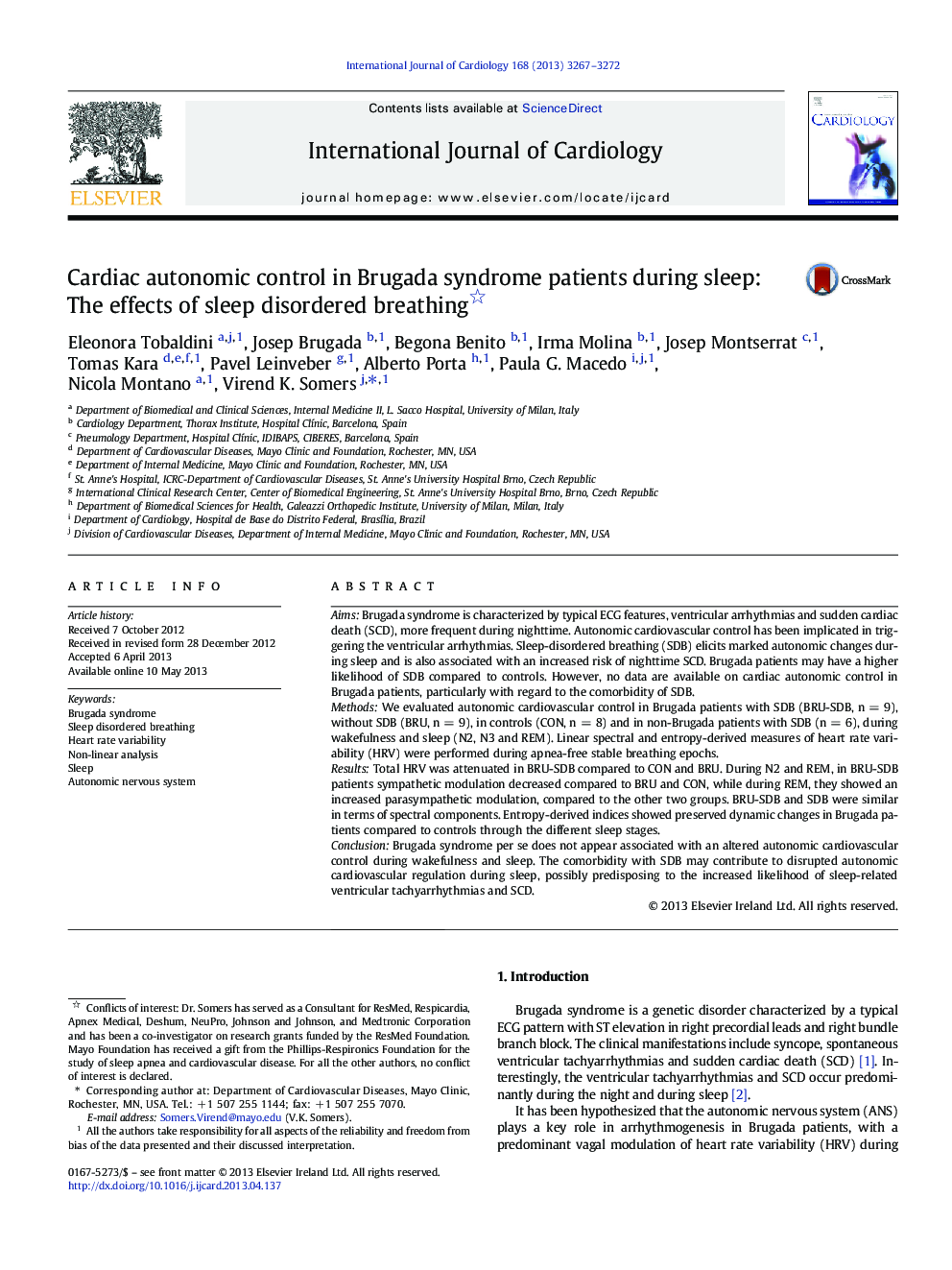| Article ID | Journal | Published Year | Pages | File Type |
|---|---|---|---|---|
| 5973602 | International Journal of Cardiology | 2013 | 6 Pages |
AimsBrugada syndrome is characterized by typical ECG features, ventricular arrhythmias and sudden cardiac death (SCD), more frequent during nighttime. Autonomic cardiovascular control has been implicated in triggering the ventricular arrhythmias. Sleep-disordered breathing (SDB) elicits marked autonomic changes during sleep and is also associated with an increased risk of nighttime SCD. Brugada patients may have a higher likelihood of SDB compared to controls. However, no data are available on cardiac autonomic control in Brugada patients, particularly with regard to the comorbidity of SDB.MethodsWe evaluated autonomic cardiovascular control in Brugada patients with SDB (BRU-SDB, n = 9), without SDB (BRU, n = 9), in controls (CON, n = 8) and in non-Brugada patients with SDB (n = 6), during wakefulness and sleep (N2, N3 and REM). Linear spectral and entropy-derived measures of heart rate variability (HRV) were performed during apnea-free stable breathing epochs.ResultsTotal HRV was attenuated in BRU-SDB compared to CON and BRU. During N2 and REM, in BRU-SDB patients sympathetic modulation decreased compared to BRU and CON, while during REM, they showed an increased parasympathetic modulation, compared to the other two groups. BRU-SDB and SDB were similar in terms of spectral components. Entropy-derived indices showed preserved dynamic changes in Brugada patients compared to controls through the different sleep stages.ConclusionBrugada syndrome per se does not appear associated with an altered autonomic cardiovascular control during wakefulness and sleep. The comorbidity with SDB may contribute to disrupted autonomic cardiovascular regulation during sleep, possibly predisposing to the increased likelihood of sleep-related ventricular tachyarrhythmias and SCD.
